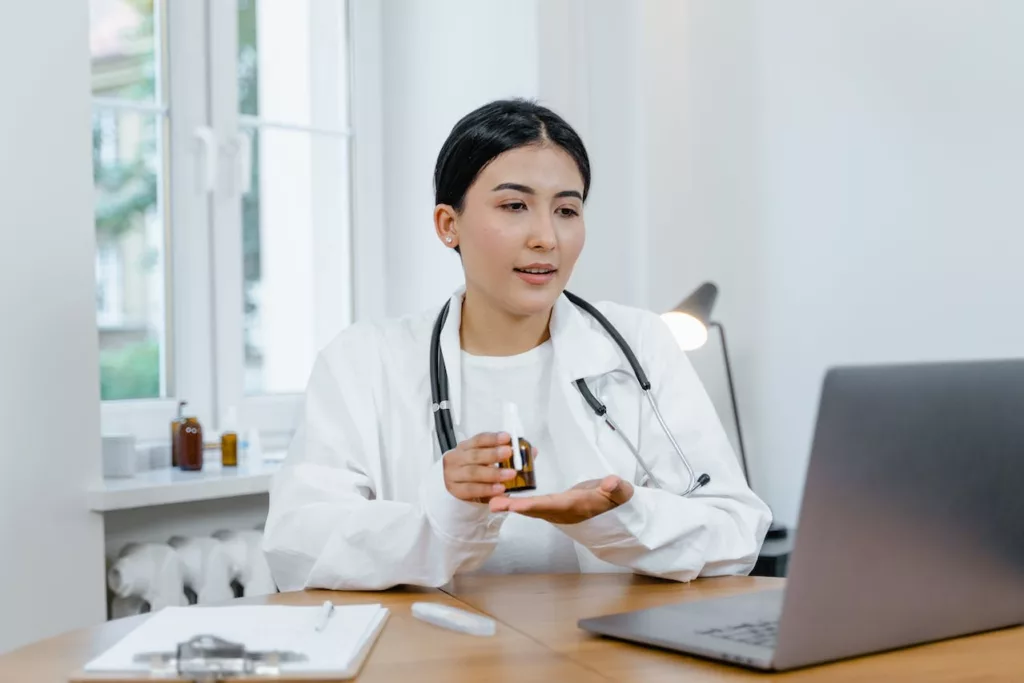Mumbai’s tropical climate provides an ideal environment for mosquitoes – leading to doctors and health experts warning travelers about malaria in this region.
However, there are several preventive measures to avoid contraction.
This article will cover everything to know about malaria risks in Mumbai – including preventive measures, risk profile and more.
Assessing Risk of Malaria
The risk of contracting malaria in Mumbai is moderate-to-high all year long – and particularly during and after the monsoon season.
The city’s tropical climate creates an ideal environment for mosquito breeding, amplifying the prevalence of malaria.
Travelers should exercise heightened caution and follow preventive measures – such as taking prescribed malaria tablets, using insect repellent, and wearing long-sleeve clothing around mosquitos.
Malaria Tablets: Shielding Against Malaria
Taking malaria tablets is a crucial defense against the disease, with a large percentage of travelers obtaining a prescription (here).
- Before departing, doctors & health experts strongly urge travelers to seek a consultation for preventive antimalarial meds.
- Commonly prescribed antimalarial drugs include malarone (atovaquone-proguanil), chloroquine, doxycycline, and mefloquine.
- Malarone is often the most-recommended by doctors, due to high effectiveness and relatively low side effects.
Starting Medication: Timing for Protection
Starting the prescribed medication before entering the malaria-prone area is essential for effective & reliable prevention.
Different antimalarial drugs have specific requirements, and a physician will guide you on when to start and how much to take.
Ensuring the effective start of medication involves understanding the specific needs of each drug. Some medications need to be taken days or weeks before entering the malaria-prone area for optimal effectiveness.
Malarone is typically considered the most convenient, since it only needs to be taken 1-2 days before travel and 7 days after.
Practical Tips for Malaria Prevention
1. Avoiding Mosquitoes: Basic Measures for Prevention
Reducing the risk of mosquito bites involves simple yet effective measures.
Using insect repellent with DEET, wearing long-sleeved clothes, and sleeping under bed nets treated with insecticides can help you avoid contraction.
Since mosquitoes are most active during dusk and dawn, taking extra precautions during these times significantly reduces the likelihood of bites.
2. Being Aware of Your Environment: Environmental Considerations for Prevention
- Mosquitoes thrive in stagnant water, emphasizing the importance of environmental awareness.
- Avoiding areas with standing water, such as ponds and puddles, is crucial for proactive prevention.
- Opting for accommodations with mosquito control measures, like window screens, adds an extra layer of protection beyond personal preventive measures.
3. Recognizing Symptoms: Early Detection for Timely Action
- Knowing the symptoms of malaria, such as fever, chills, headache, and muscle aches, is essential.
- Even for individuals consistently taking malaria tablets, seeking medical attention promptly if these symptoms occur is crucial.
- Early detection facilitates timely and effective treatment, reducing the risk of complications associated with advanced stages of the disease.
Beyond Medication: Common Considerations for Malaria
1. Health Centers: Swift Access to Medical Assistance
Maintaining a list of healthcare locations, including local doctors and hospitals, is crucial for travelers.
Knowing where to go beforehand ensures swift access to medical assistance in the event of suspected malaria or any other health-related emergencies. Quick response times can significantly impact the outcome of contracting malaria.
2. Stay Updated with Local Health Advisories
Health departments and travel clinics routinely provide updates on prevalent diseases and recommended preventive measures.
Regularly checking for these advisories ensures that travelers are well-informed and can adapt their preventive strategies accordingly, contributing to a more comprehensive approach to health protection.
3. Consider Travel Insurance
If you’re a frequent traveler to malaria-prone regions, investing in travel insurance is a wise step.
Ensuring the policy covers medical expenses, including potential malaria treatment, provides financial security in the face of unexpected health challenges.
This proactive measure ensures that travelers can focus on their well-being without the added burden of financial concerns in case of unforeseen medical situations.
If you Contract Malaria
If you suspect you have contracted malaria, recognizing the symptoms is crucial.
- Symptoms often include fever, chills, headache, and muscle aches.
- Hospitals and medical centers in Mumbai are well-equipped to handle malaria, with strong preparedness and treatment options.
- It’s essential to seek immediate medical attention as early as possible, even if you are taking malaria tablets.
Early detection and prompt treatment significantly improve the chances of a full recovery.
Frequently Asked Questions (FAQs)
Q1: How likely am I to get malaria in Mumbai?
The risk varies, but Mumbai has a notable malaria risk due to mosquitoes, especially during the monsoon. Taking preventive measures, including malaria tablets and mosquito avoidance, is crucial.
Q2: What are the common symptoms of malaria?
Symptoms include fever, chills, headache, and muscle aches. If you experience these, seek medical attention promptly, even if you’re taking malaria tablets.
Q3: Can I start taking malaria tablets after arriving in Mumbai?
Ideally, start the prescribed medication before entering the malaria-prone area. Different drugs have specific timelines, and consulting with a doctor is crucial for effective protection.
Q4: Are there specific areas in Mumbai with higher malaria risks?
Malaria risks can vary, but being vigilant throughout Mumbai, especially in areas with standing water, is essential. Consult local health advisories for more specific information.
Q5: How effective are insect repellents and bed nets for preventing malaria?
Mosquito repellent and bed nets treated with insecticides are moderately-effective in reducing mosquito bites, but won’t fully protect you. Combining their use with other preventive measures enhances overall protection.
Q6: How long does it take for malaria symptoms to appear after a mosquito bite?
Malaria symptoms can manifest anywhere from a week to several weeks after a mosquito bite. It’s essential to be vigilant and seek medical attention promptly if symptoms, such as fever and chills, occur, even if you’ve been taking preventive medication.
Wrapping Up: Malaria Prevention in Mumbai
In conclusion, safeguarding oneself from malaria in Mumbai involves a comprehensive and straightforward approach.
From understanding the nuances of malaria risks, to following preventive measures like consulting a doctor for effective antimalarial medications and wearing thick & long-sleeve clothing, each factor contributes to a robust defense against this potentially serious health threat.
By integrating these measures into their travel plan, travelers empower themselves to enjoy a safe and enriching experience in Mumbai, India – with confidence in their protection measures.
Start Consultation for Antimalarials ➜

